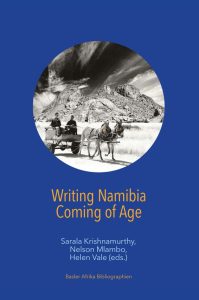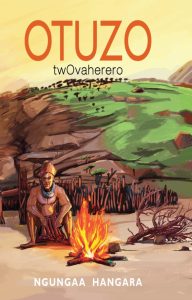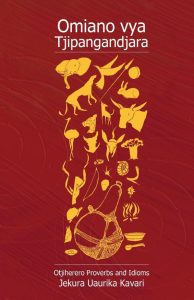Publisher: University of Namibia Press, Namibia
Pages: 392
Year: 2018
Category: History & Criticism, Literature
Dimensions: 234 x 156 mm
Writing Namibia: Literature in Transition is a cornucopia
of extraordinary and fascinating material which will be a rich resource
for students, teachers and readers interested in Namibia. The text is
wide ranging, defining literature in its broadest terms. In its
multifaceted approach, the book covers many genres traditionally outside
academic literary discourse and debate. The 22 chapters cover
literature of all categories in Namibia since independence: written and
performance poetry, praise poetry, Oshiwambo orature, drama, novels,
autobiography, women’s writing, subaltern studies, literature in German,
Ju|’hoansi and Otjiherero, children’s literature, Afrikaans fiction,
story-telling through film, publishing, and the interface between
literature and society. The inclusive approach is the book’s strength as
it allows a wide range of subjects to be addressed, including those
around gender, race and orature which have been conventionally silenced.
Price range: £47.00 through £50.00
About the editors
Sarala Krishnamurthy (PhD, Bangalore, India) is Professor of English in
the Faculty of Human Sciences at the Namibia University of Science and
Technology. She has taught at the post graduate level for 35 years in
the areas of Stylistics, English Language Teaching and Post-colonial
Literature, and successfully supervised eight PhD and twelve MPhil
students. She has published two books on African literature and several
articles in international peer-reviewed journals. She is currently
working on a major project which is the compilation of Namibian English
as part of the International Corpus of English, based at the University
of Hong Kong.
Helen Vale has taught literature in the English Departments of the
University of Swaziland (four years) and of the University of Namibia
(sixteen years). She is now a freelance editor and trainer. Her academic
interests include Namibian literature in English since independence,
linkages between history and literature, the role of memory and
autobiography.
Review
“The Strength of the book lies in its egalitarian and inclusive
approach and the way it contextualises the political archaeology of
place, time and people. Writing Namibia restores balance in addressing silences around gender, race and orature”
Dorian Haarhoff, Poet



